Legacy Over Optics: How From This Island Gave Back 8,000 Times to Nature
Jul 6, 2025
•
Blog
•
Bumiterra Team
Maudy Ayunda, CEO and Co-Founder at From This Island, doing the honours of planting the first Tengkawang seedling at Desa Rumbih, West Kalimantan. Left: Robertus Bancak, the community keeper for the then-FTI site. A husband and father in his middle age who works as a palm oil and construction labor, as well as a rubber tapper.
In a beauty industry awash with greenwashing, From This Island (FTI) charted a different path — one rooted in truth, measurable impact, and a restoration surplus that far exceeded what was taken. This is the story of how a single lip butter became a symbol of what it means to give back meaningfully to nature, uplift communities, and win over customers with authenticity.
Beyond Optics: The Illipe Challenge
When FTI launched their Illipe Plumping Lip Butter, they confronted a dilemma: how to use a rare, rainforest-derived ingredient without depleting the very ecosystem it came from?
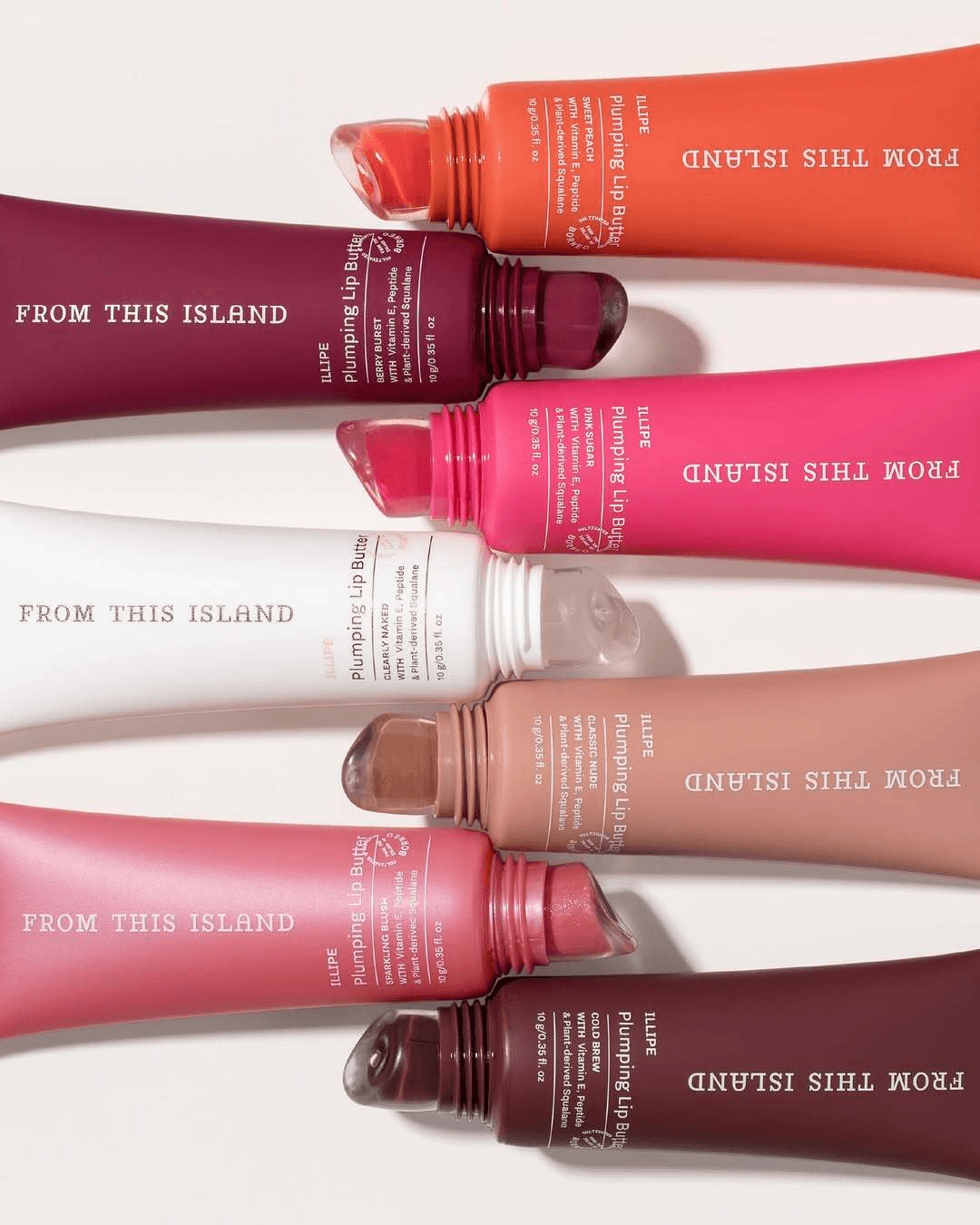
Illipe Plumping Lip Butter by From This Island.
Image Source: @fromthisisland
Illipe butter, extracted from the nuts of the Tengkawang tree, is prized in cosmetics for its nourishing qualities — but overharvesting and forest degradation have left the species vulnerable. Instead of minimal offsets or vague pledges, FTI made a bold commitment: to restore far more illipe than they extracted, and to show their work transparently.
8,000 Times Over: A Restoration Surplus FTI’s mantra — “legacy over optics” — is backed by numbers.
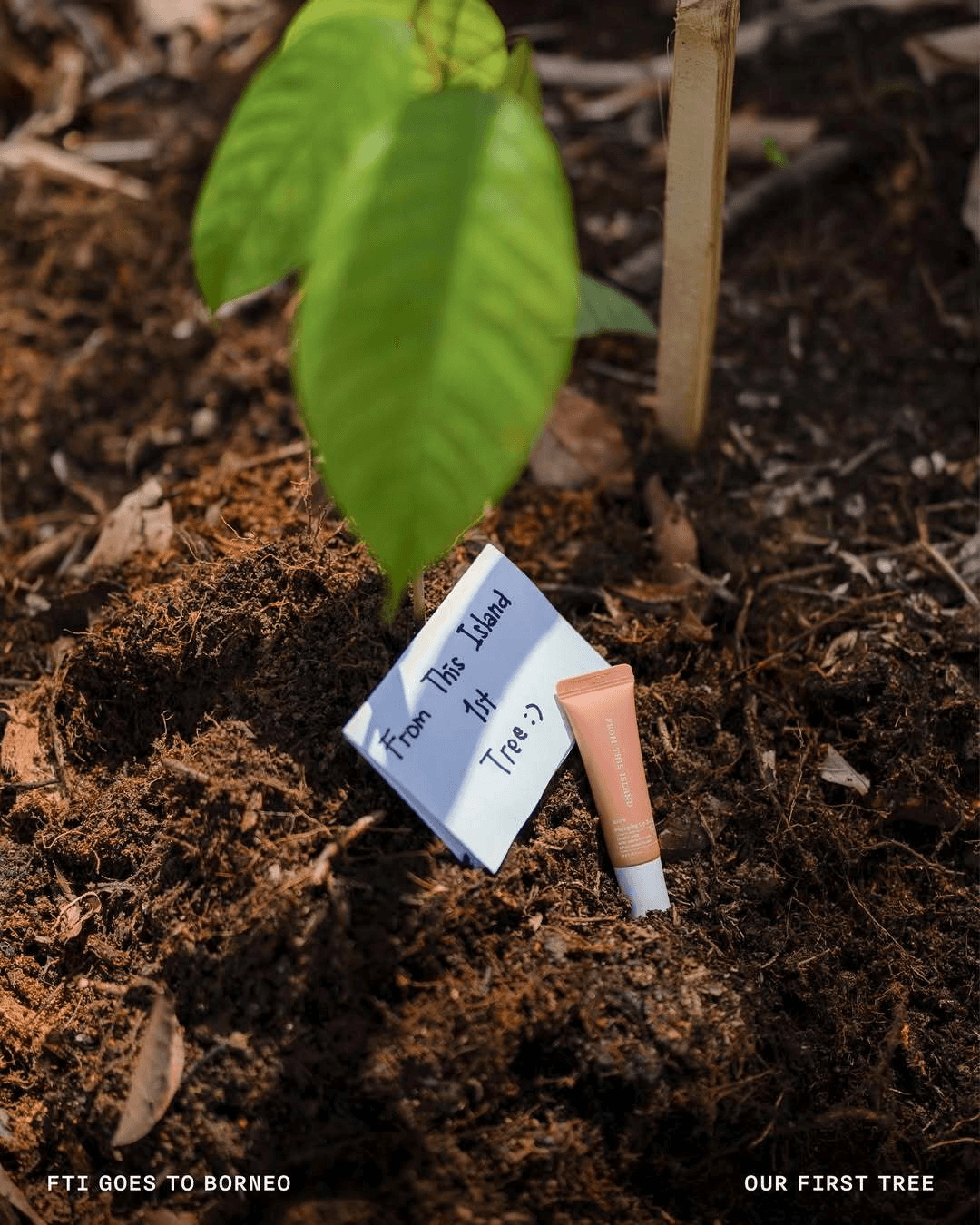
The first tree out of 1000 planted at Bumiterra's restoration site in Desa Rumbih.
Image Source: @fromthisisland
Drawing on data from our restoration work and ForestWise (our partner who sources and processes Tengkawang for FTI), here’s what we achieved:
They planted 100 Tengkawang trees, targeting a 90% survival rate.
Over their lifetime, these trees could yield 8,100 kg of illipe butter — over 8,000 times the amount used for the launch batch of lip balms.
Each tree sequesters ~200 kg of CO₂ annually, stabilizes soils, and supports biodiversity.
As their campaign put it, this was a restoration surplus grounded in ecological math — giving far more back than was ever taken.
Why Tengkawang Matters
The choice of Tengkawang was deliberate — ecological, cultural, and ethical.
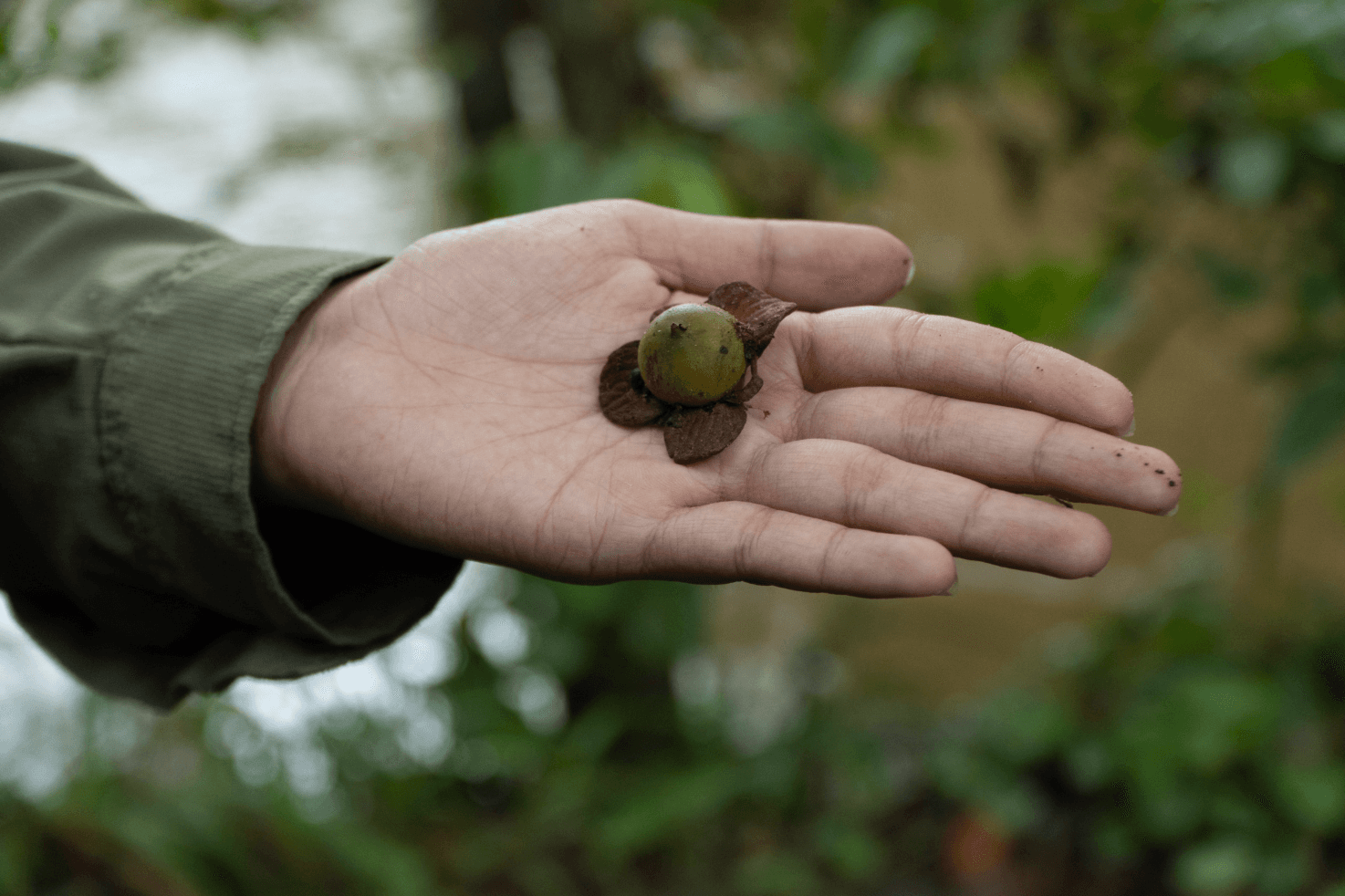
Tengkawang, also known as the illipe nut, is an endemic species of West Kalimantan with significant economic and ecological value.
Native to West Kalimantan, this climax rainforest species anchors ecosystems, supports wildlife like hornbills and macaques, and sustains pollinators. It’s also culturally significant: seen by Dayak communities as a “forest inheritance” species, passed through generations as a symbol of stewardship.
Traditionally used as a balm and cooking oil, illipe (Tengkawang) also provides seasonal food and livelihood for communities, making it both an ecological and social keystone.
Visible, Measurable Impact
At the planting site in Desa Rumbih, West Kalimantan, FTI’s restoration was tracked and shown in a before–after format. Drone images from May 2024 and March 2025 document the transformation of a degraded hectare into a flourishing green landscape. Even after FTI stopped sponsoring the site directly, ALETRA continued the stewardship, cementing FTI’s legacy beyond a single campaign.
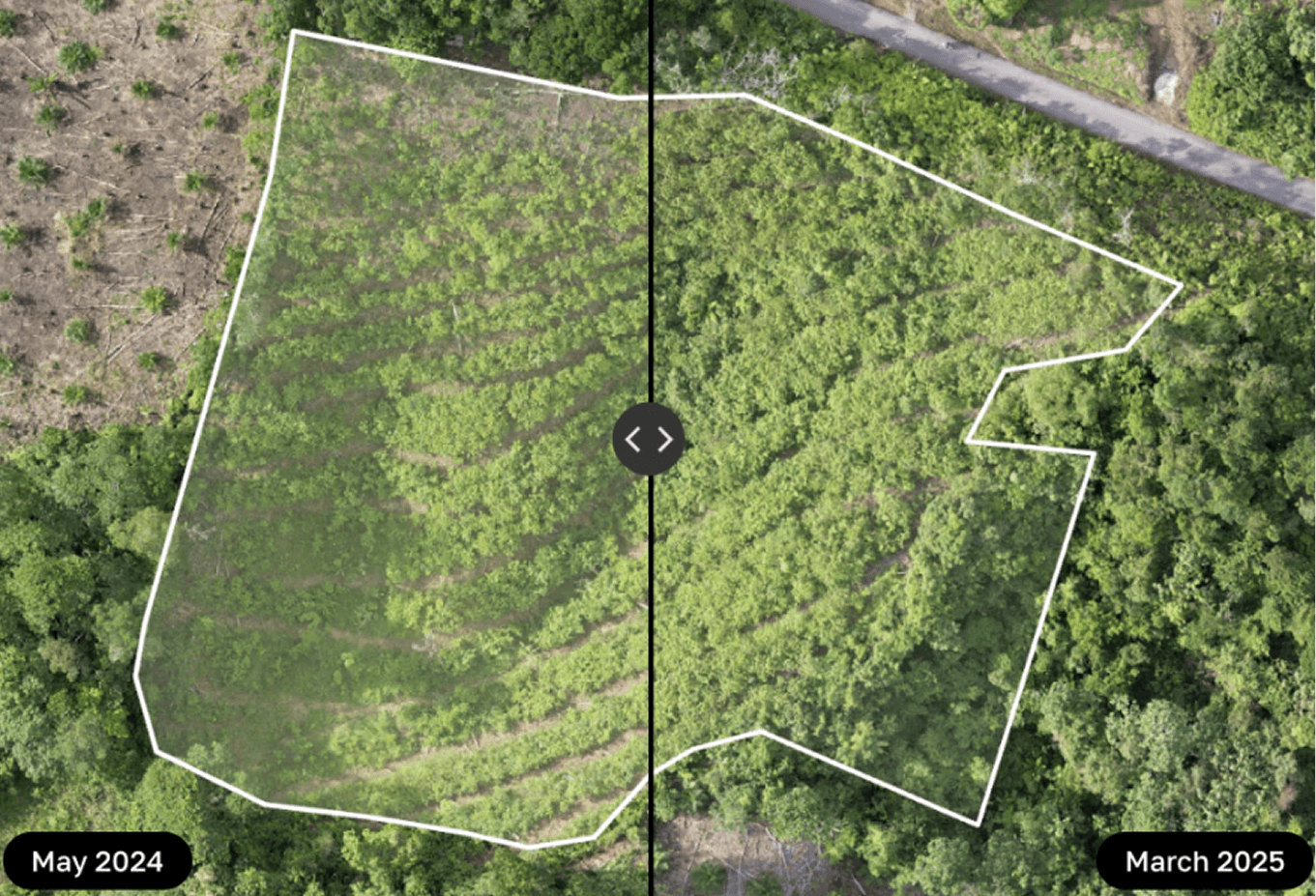
From This Island’s original restoration site located in Desa Rumbih, West Kalimantan, shown in a Before-After format. Although they are no longer sponsoring this plot of land, the legacy is continued by ALETRA.
The Social Media Effect: Proof on the Ground FTI’s dedication to real restoration wasn’t just good for the planet — it proved great for business too.
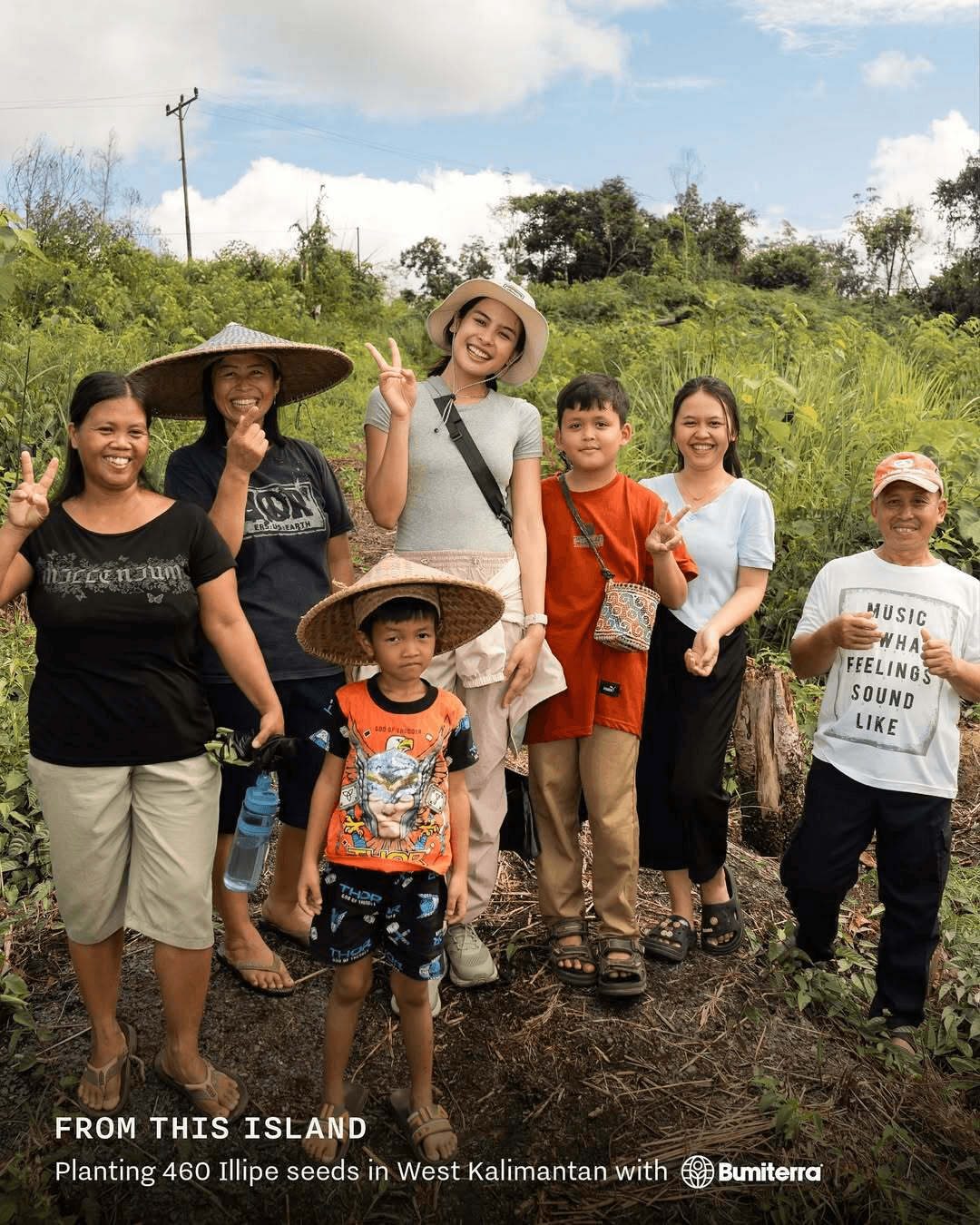
The CEO and Co-Founder of From This Island, Maudy Ayunda, took documentation with local Community Keepers and their families during her visit to Bumiterra’s reforestation site.
Image source: @fromthisisland
The campaign soared on Instagram, where real documentation from the field resonated with followers weary of performative green campaigns.
FTI achieved a 174.5% engagement rate — the highest in its history — during the campaign period.
Posts such as the tree-planting ceremony and before–after shots earned thousands of likes and hundreds of comments, with notable posts racking up 127,986 likes (July 31, 2024) and 1,324 likes (August 1, 2024).
These weren’t stock images of greenery; they were raw, authentic stories: a photo of a young sapling tagged “From This Island’s First Tree :)”, the team walking through the rainforest with Dayak guides, and honest captions about their restoration journey.
Lessons for Others
FTI’s success story offers three key lessons for businesses navigating the sustainability space:
Plant Seeds of Resilience
When you restore more than you extract, you create resilience — not just in ecosystems, but in supply chains, communities, and brand reputation. FTI’s planted Tengkawang trees will keep giving for decades, far outlasting a single product cycle.Prepare for Tomorrow’s Risks
Investing in nature today shields you from future shocks — whether supply insecurity, climate disruptions, or consumer skepticism. FTI secured their illipe supply chain while mitigating reputational risks.Anchor in Truth to Build Trust
By publicly documenting their actions, FTI built enduring trust. Instead of vague claims, they showed real saplings in real soil, planted by real people — a rare commodity in an age of performative sustainability.
The Power of Storytelling
Part of what made FTI’s campaign so effective was how they told their story — clearly, humbly, and with proof.
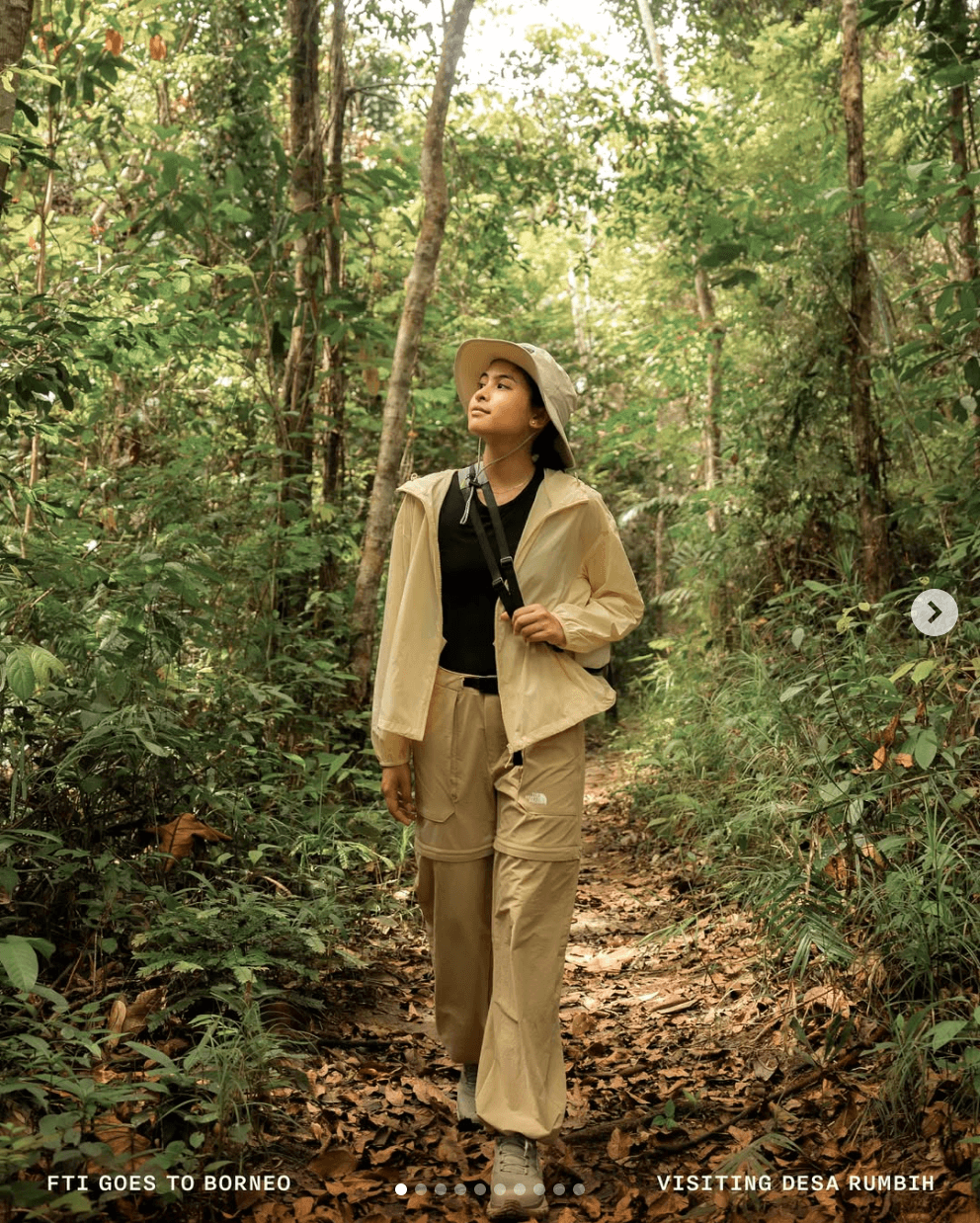
One of the campaign documentations from FTI’s visit to Desa Rumbih.
Image source: @fromthisisland
A Living Legacy
Even after the launch, FTI’s work lives on. Their hectare of Tengkawang continues to grow, absorbing carbon, feeding wildlife, supporting livelihoods — a quiet, living proof of what happens when business and biodiversity align. The legacy they created is now maintained by ALETRA, ensuring the site thrives beyond FTI’s direct involvement.
What This Means for the Industry
FTI has demonstrated that sustainability is not a trade-off but a multiplier — for trust, community impact, ecological resilience, and profits.
Rather than “offsetting” or leaning on superficial certifications, they gave more back to nature than they took, proving that brands can thrive without compromise.
By daring to look beyond optics, FTI created something bigger than a product: they created a legacy. With 100 Tengkawang trees planted, a rainforest hectare restored, thousands of customers won over, and a community uplifted, their campaign shows what’s possible when you anchor in truth and act boldly.
FTI’s story reminds us that when businesses plant seeds of resilience today — for nature, for communities, and for themselves — they prepare for a future that is not just sustainable, but abundant.
References
Instagram posts: @fromthisisland (July 31, 2024 — “Nol: Take A Chance With Me”, 127,986 likes; August 1, 2024 — “From This Island’s First Tree”, 1,324 likes).
Internal data: FTI campaign deck (2024–2025).
Restoration site: Desa Rumbih, West Kalimantan.
Partners: ForestWise (illipe extraction); ALETRA (stewardship).
Metrics: 8,100x restoration surplus, 174.5% engagement rate, 2-week sell-out, 527x uplift from baseline.

